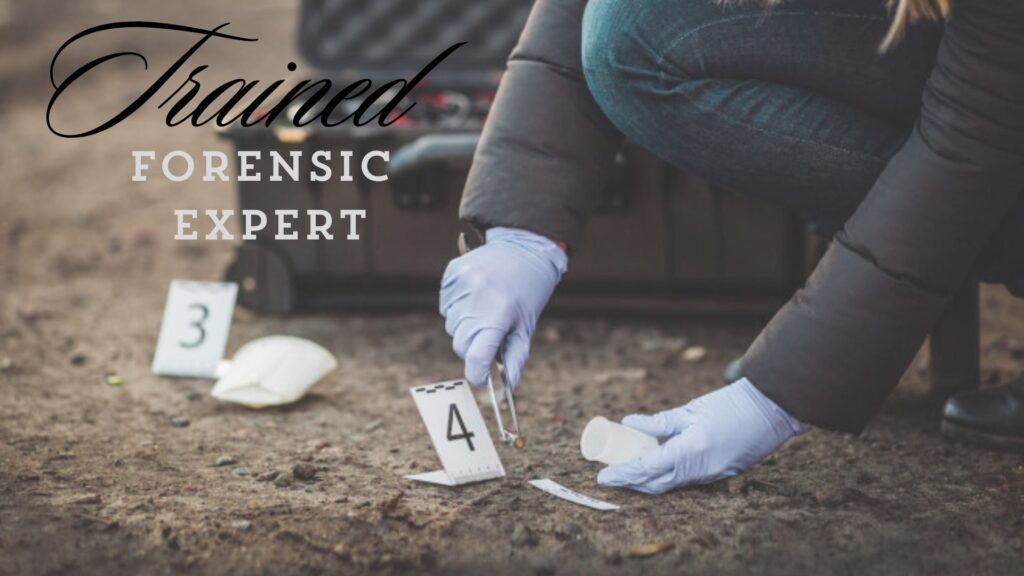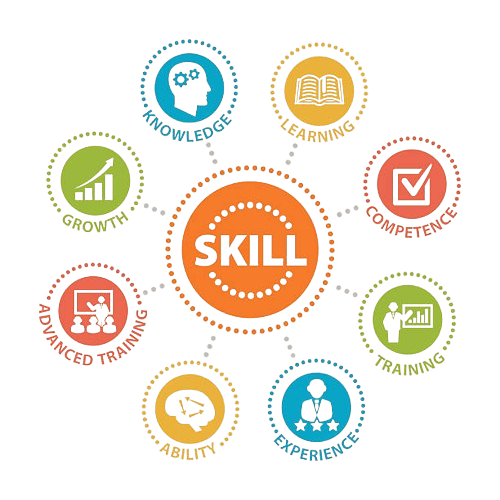Brilliant Forensic Investigation > Trained Forensic Expert
TRAINED-FORENSIC-EXPERT

Driving your career forward in forensic science involves a combination of education, skill development, practical experience, and networking. Here’s a roadmap to help you advance your career in this fascinating field:
1. Education and Training
- Earn a Degree: Pursue a bachelor’s degree in forensic science, biology, chemistry, or a related field. Some roles may require advanced degrees such as a master’s or Ph.D.
- Specialize: Consider specializing in a specific area of forensic science, such as DNA analysis, toxicology, digital forensics, or forensic anthropology.
- Continuous Learning: Stay updated with the latest advancements in forensic science through workshops, seminars, and online courses.

2. Skill Development
- Analytical Skills: Hone your ability to analyze complex data and evidence accurately.
- Attention to Detail: Develop meticulous attention to detail to ensure thorough investigation and analysis.
- Critical Thinking: Cultivate critical thinking skills to evaluate evidence and draw logical conclusions.
- Communication Skills: Improve your written and verbal communication skills for report writing and testimony delivery.
3. Gain Practical Experience
- Internships: Seek internships or volunteer opportunities in forensic laboratories, medical examiner’s offices, or law enforcement agencies to gain hands-on experience.
- Entry-Level Positions: Start your career in entry-level positions such as forensic technician or crime scene investigator to build practical skills.
- Case Involvement: Actively participate in real-life cases to gain valuable experience and exposure to different forensic techniques.


4. Certifications and Credentials
- Certifications: Obtain relevant certifications in specialized areas of forensic science to demonstrate your expertise and enhance your credibility.
- Professional Memberships: Join professional organizations such as the American Academy of Forensic Sciences (AAFS) or the International Association for Identification (IAI) to stay connected with peers and access resources.
5. Networking
- Attend Conferences and Workshops: Participate in forensic science conferences, workshops, and seminars to network with professionals and stay updated with industry trends.
- Online Platforms: Join online forums and social media groups dedicated to forensic science to connect with professionals and share insights.
- Mentorship: Seek guidance from experienced forensic scientists or mentors who can provide valuable advice and support in your career journey.

6. Continual Career Development
- Set Goals: Define clear career goals and create a roadmap to achieve them, whether it’s advancing to a higher position, specializing in a specific area, or pursuing further education.
- Seek Feedback: Solicit feedback from supervisors, mentors, and peers to identify areas for improvement and continually enhance your skills.
- Stay Flexible: Forensic science is a dynamic field, so be open to new opportunities and adapt to changes in technology, regulations, and industry standards.
How to become a BFI certified trained-forensic-expert?
BFI certified forensic expert must first possess a graduate/ post-graduate in forensic science or any other professionalized degree. Apart from this specialized degree, the candidate undertakes a formal training program on any field of forensic science and earns this certification by passing a comprehensive exam. Moreover, the candidate must work as intern for minimum 3 months and gain specialized knowledge and skills in particular field of forensic science.
Educational Requirements:
- Obtain a relevant degree. Typically, a bachelor’s degree in forensic science, criminal justice, or a related field is required. Advanced degrees can be beneficial but are not always necessary.
Professional Experience:
- Gain experience in the forensic field. Most certification programs require a certain amount of professional experience, often ranging from 1 to 5 years, depending on the level of certification sought.
Training and Courses:
- Complete specific forensic training courses. The Brilliant Forensic Investigations (BFI) may have specific courses or accredited training programs that candidates must complete. This could include workshops, seminars, and specialized forensic training sessions.
Roles and Responsibilities of BFI certified trained-Forensic-Expert
The standard role and responsibilities of BFI certified trained-forensic-expert include the following:
- Responding to crime scenes to make assessments and perform investigative tasks
- Identifying and collecting physical evidence, and making notes
- Process evidence in confidential manner in the organization
- Support in compiling reports and court proceedings
- Work as responsible mentee under his/her mentor across the organization
- Maintain harmonious behavior within the organization



